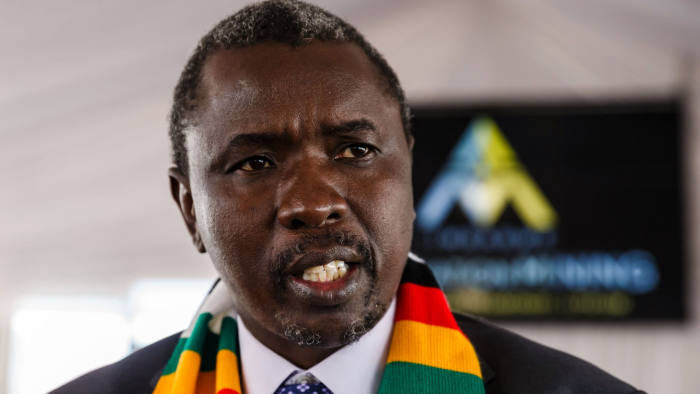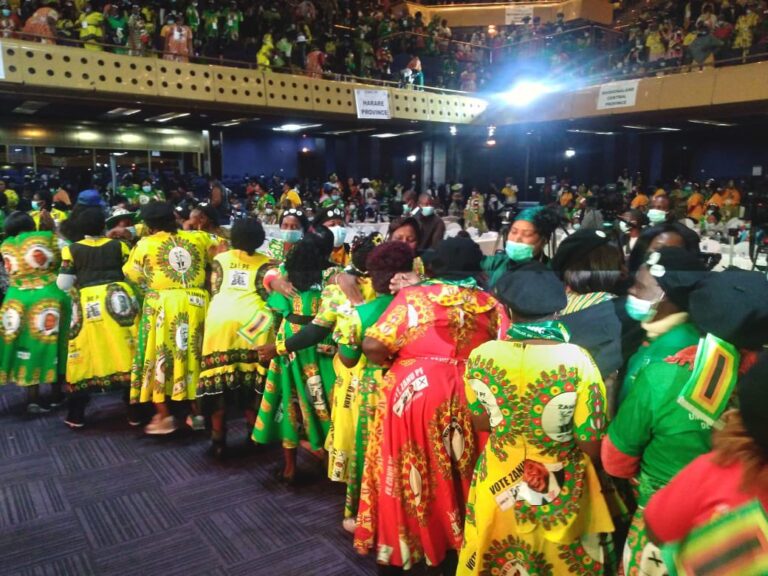HARARE— In the twilight years of Rhodesia, the Selous Scouts—a clandestine counter-insurgency unit—launched a devastating public relations war against liberation fighters. This campaign, sometimes encapsulated in propaganda like the notorious "Anatomy of Terror," was designed not just to defeat freedom fighters on the ground, but to discredit them in the court of public opinion, poisoning their image and cutting …
Selous Scouts Tactics Used Against Kuda Tagwirei In PR Warfare?

HARARE— In the twilight years of Rhodesia, the Selous Scouts—a clandestine counter-insurgency unit—launched a devastating public relations war against liberation fighters. This campaign, sometimes encapsulated in propaganda like the notorious “Anatomy of Terror,” was designed not just to defeat freedom fighters on the ground, but to discredit them in the court of public opinion, poisoning their image and cutting off civilian support.
Today, a disturbing parallel is being drawn to the public smearing of Zimbabwean businessman Kudakwashe Regimond Tagwirei.
Once a key figure in the country’s economic programs, Tagwirei is now widely viewed by the public as the sole source of Zimbabwe’s deep-seated problems—a persona created by an aggressive and successful information campaign that appears to have meticulously followed the historical blueprint of psychological warfare.
The argument is that a similar strategy of total character assassination has been meticulously deployed against Tagwirei. Where Rhodesia’s propaganda sought to dump every atrocity and failure onto the liberation movement, the modern narrative has allegedly dumped the entirety of Zimbabwe’s inherited economic malaise—including issues inherited from Rhodesia itself—onto Tagwirei’s shoulders.
The Propaganda Win: The result is a total victory in the public relations war. The average Zimbabwean no longer evaluates Tagwirei’s business activities, investments, or contributions to the economy. They see only a figure synonymous with corruption, state capture, and the personification of all forms of evil currently afflicting the nation.
The Sanctions Impact: This campaign has achieved concrete outcomes, most notably the imposition of sanctions by the US and UK governments, citing his alleged corrupt dealings and ties to senior political figures. While investigative reports from global bodies like The Sentry and Open Secrets have detailed complex corporate structures and alleged preferential treatment in government deals, the public narrative simplifies these reports into one damning, unyielding truth: Tagwirei is the cause of all problems.
Selective Scrutiny: By focusing all public rage and scrutiny on one target, the narrative successfully diverts attention away from historical economic debts, broader systemic failures, and the actions of other key players in both the private and public sectors. The nation, it is argued, has “fallen for propaganda,” and few now dare to read between the lines or question the simple, convenient narrative being sold.
The campaign against Tagwirei was not confined to foreign reports; it was powerfully amplified by domestic political voices, creating a chorus of condemnation:
Political Amplification: Prominent opposition figures like Tendai Biti, alongside controversial personalities such as Acie Lumumba and former ZANU-PF activist Blessed Geza all played key roles in publicizing allegations that specifically targeted Tagwirei and his involvement in state programs.
Critics of the single-target narrative suggest this was “all well choreographed and executed.” The timing, the intensity, and the consistent message across political divides—from opposition firebrands to internal party dissidents—all point to a carefully planned operation.
If this is indeed a sophisticated propaganda operation echoing the Rhodesian tactics of old, the most vital questions remain unanswered: By whom and for what ultimate purpose?
Who Benefits? Is the campaign orchestrated by external forces seeking regime change by targeting a key financier of the current political establishment? Or is it the work of internal political factions seeking to eliminate a rival power base and consolidate control over lucrative economic sectors, using the public’s justifiable anger as a political weapon?
The Hidden Agenda: By making Tagwirei the scapegoat for historical and systemic failures, who is being shielded from public accountability? The successful “dumping” of the nation’s entire baggage onto one individual allows others—past and present officials—to avoid facing necessary scrutiny.
The narrative against Kuda Tagwirei is now entrenched, a powerful piece of psychological warfare that has reshaped public perception and international policy. For the Zimbabwean public to move forward, it must not only confront the genuine allegations of corruption but also develop the critical eye to question who crafted the narrative, and why they chose to use the tactics of a bygone, discredited regime to achieve their modern political or economic ends.





